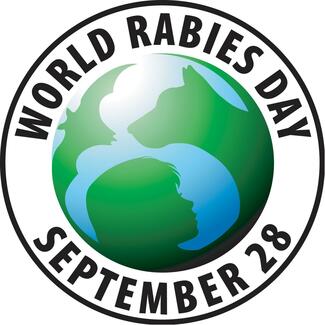
1. Louis Pasteur's scientific discoveries in the 19th century revolutionized medicine and continue to save the lives of millions today.
Some of the greatest scientific discoveries haven’t resulted in Nobel Prizes.
Louis Pasteur, who lived from 1822 to 1895, is arguably the world’s best-known microbiologist. He is widely credited for the germ theory of disease and for inventing the process of pasteurization – which is named after him – to preserve foods. Remarkably, he also developed the rabies and anthrax vaccines and made major contributions to combating cholera.
See the full article via @The Conversation at https://theconversation.com/louis-pasteurs-scientific-discoveries-in-the-19th-century-revolutionized-medicine-and-continue-to-save-the-lives-of-millions-today-191395 [ANYONE can republish this article due to the Creative Commons use]
2. Coordinated by the Global Alliance for Rabies Control, World Rabies Day is the biggest event on the global rabies calendar (1), occurring annually on September 28 – the anniversary of Louis Pasteur’s death – since 2007. The event aims to raise awareness and visibility while advocating for global elimination of rabies. Created as an inclusive initiative, it unites people, organizations, and stakeholders across all sectors. With this concept of togetherness and unity in mind, the theme for this year’s World Rabies Day is “Rabies: One Health, Zero Deaths.” Learn more with this article via The Pathologist!
3. Did you know that today is #WorldRabiesDay? @RodneyRohde of @TXST_CLS gives us the lowdown on this terrifying, ancient disease – from epidemiology and testing to tips on protecting yourself from exposure. Listen in to the Let's Talk Micro podcast to learn more!
